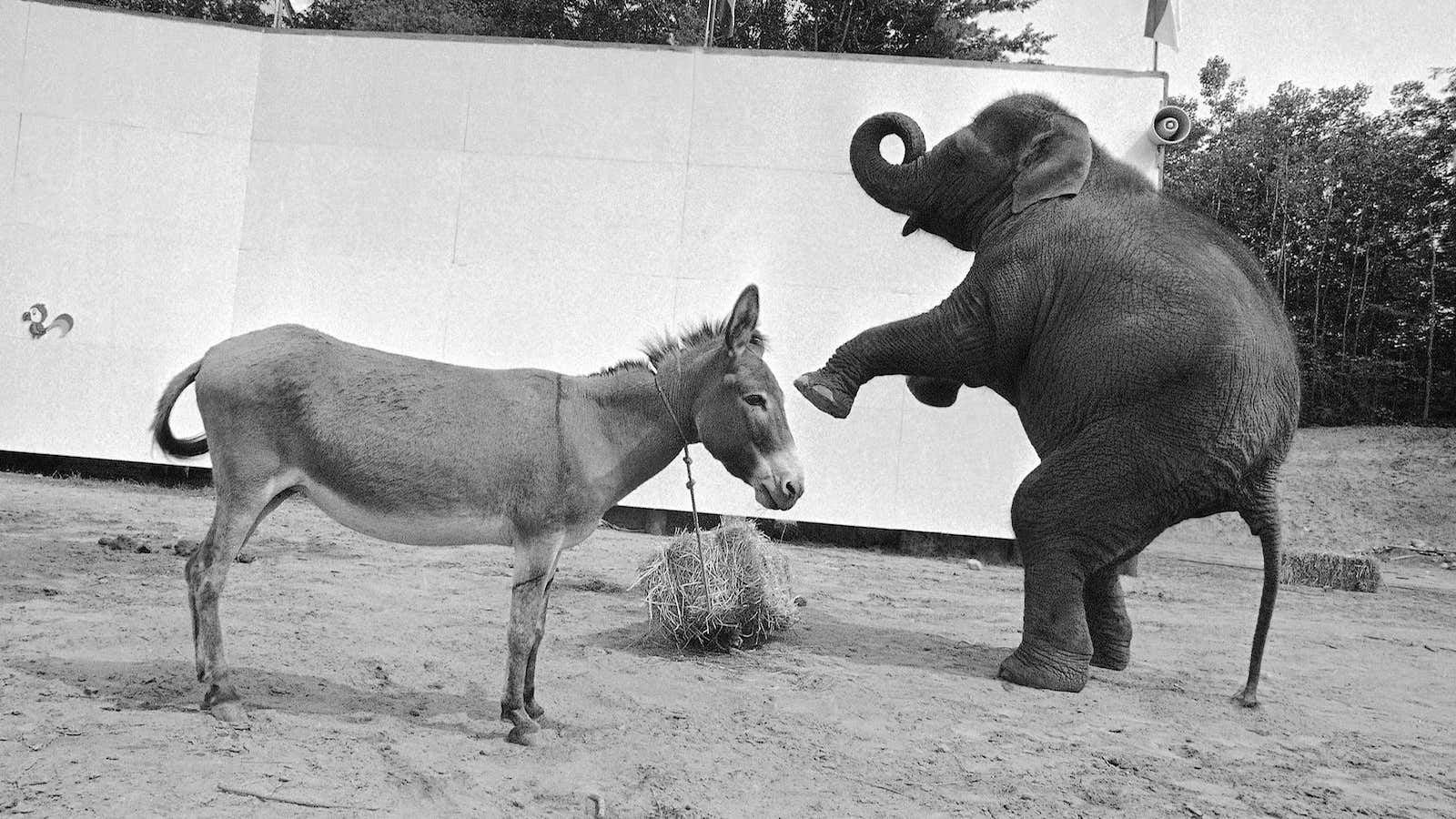On Oct. 19, an estimated 70 million Americans tuned in for the final presidential debate between Hillary Clinton and Donald Trump. In theory, voters watching the debates should experience a common version of reality: everyone is hearing the same words, spoken by the same people. Whereas the New York Times and Fox News may report on the presidential campaign quite differently, watching a debate offers an unfiltered version of each candidate in real time.
Yet when Republicans and Democrats watch the exact same event, they somehow walk away with radically different conclusions about what just happened. This is because people do not see the world objectively. The human brain is constantly filtering the world in a manner that reinforces the goals and values of our favorite group—whether that involves political affiliations, national identities or our hometown baseball team.
For example, in the first presidential debate, CNN’s random sample of American voters provided pretty definitive evidence that Hillary Clinton won by one of the largest margins in modern history, beating Donald Trump by 68% to his 27% . By their count, Clinton won again in the final debate, but by a narrower margin (52% to 39%).
But while the first debate looked like a clear victory for Clinton, there was a clear divide among Democrats and Republicans: A closer look at the polls revealed that an overwhelming majority of Democrats saw a Clinton victory (89% to 5%), while most Republicans scored the debate in favor of Trump (54% to 28%). These two groups of Americans watched the exact same event on TV and came away with very different conclusions. This happens after virtually every presidential debate: Democrats and Republicans almost never agree on who won, despite taking in identical information. What is it about the human mind that leads us to such different conclusions?
Psychology has provided extensive evidence that our partisan identities, such as whether we are Republicans or Democrats, distort our interpretations for reality. And this pattern of motivated reasoning is hardly limited to the political arena. In a famous social psychology study, a pair of researchers found that college football fans from Princeton and Dartmouth had strikingly different memories about the facts of a game between the two schools. When the newspapers from each school reported very different version of the game, the researchers decided to test whether fans at the game saw it differently. As predicted, Princeton students recalled the Dartmouth team had committed many more fouls, while Dartmouth students thought both teams were equally responsible. Thus, the partisan lens of their college affiliation biased their memory for the event.
A new paper, “Perceiving the World through Group-Colored Glasses: A Perceptual Model of Intergroup Relations,” from my research group argues that this partisan filter may even shape what we see, smell, hear, feel, and taste. For instance, the last presidential election cycle saw Godfather’s pizza CEO Herman Cain rise in popularity in the Republican presidential primary. In lockstep with Cain’s ascent in the polls, Republicans reported a massive upswing in their taste for Godfather’s pizza, while Democrats suddenly found it aversive. (It’s not hard to imagine how Democrats feel about the taste of Trump Steaks these days.)
We have also found that national identities can influence our sensory experience. In two studies, we reminded Swiss citizens of their national identity or their personal identity and then had them rate the smell of Swiss chocolate—which is a source of national pride—and popcorn. When they were reminded of their national identity as Swiss citizens, our Swiss participants reported the smell of Swiss chocolate as more intense (and there were no effects on the smell of popcorn). We concluded that the groups we belong to might have a surprising impact on our judgments of the world around us.
When you identify with a group—whether that’s a political party, sports team, or nation—it changes how you interpret the world. We see what we want to see. But this can be a huge problem in a democracy, because people are walking around with different version of reality in their own heads.
Understanding this issue should give us pause when we perceive our political opponents as naïve or foolish. It’s worth considering that we may be the ones suffering from a distorted version of reality. The cure for our bias is to take a step back from our immediate interpretations and try to ground our opinions in fact.
Instead of trusting our own eyes or ears or nose, we should look to trusted scientific polls, fact checkers, and non-partisan policy think tanks. A random sample of Americans, like in the CNN poll mentioned above, is a more trustworthy source than the online polls that can be easily gamed. Websites like PolitiFact have research teams dedicated to fact-checking political candidates. And the Congressional Budget Office is more likely to give you an honest assessment of candidate’s economic plans than a partisan lobby group. Building these checks into your thinking will help you remained tethered to reality while your political opponents luxuriate in fantasy—or retreat to conspiracy.




